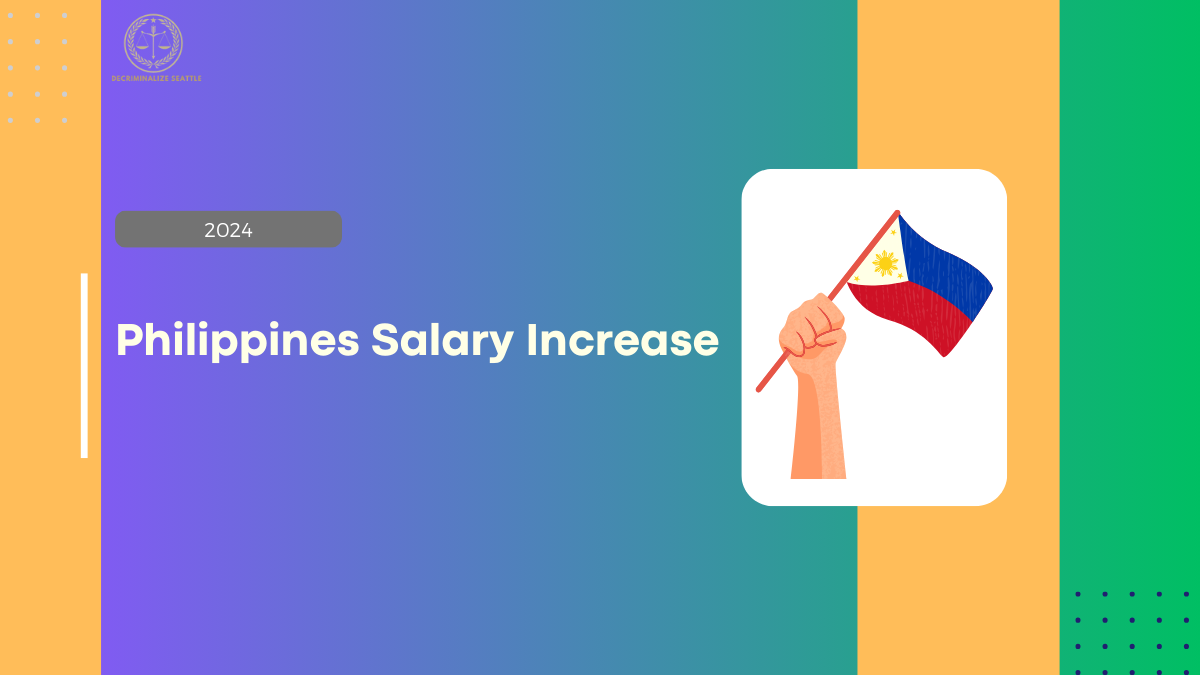As the Philippines progresses toward economic recovery, announcing a worker salary increase in October 2024 marks a major development. This pay raise stems from combined efforts of labour organizations, government initiatives, and favourable economic conditions to enhance Filipino workers’ living standards. This article explores the details of the salary hike, the driving factors behind it, and its anticipated effects on various sectors.

Philippines Salary Increase for October-November 2024
The Department of Labor and Employment (DOLE) has confirmed that a nationwide salary hike will occur in October 2024. However, the raise will vary by region, considering the diverse economic conditions and living costs across the Philippines. On average, workers will receive a 5% to 10% pay increase, depending on their location and industry.
For example, workers in the National Capital Region (NCR), where the cost of living is higher, will see more substantial raises compared to those in less developed regions. In the NCR, the minimum wage will rise from PHP 570 to PHP 627, a 10% increase. Regions with lower living expenses will experience smaller yet still meaningful increases.
Reasons Behind the Salary Increase
Several key factors have contributed to the decision to implement this salary increase:
- Inflation and Cost of Living: Inflation has been steadily rising, reducing workers’ purchasing power. The salary hike aims to offset this by helping workers maintain their standard of living.
- Economic Growth: The Philippines’ post-pandemic economic recovery, led by sectors like manufacturing, services, and technology, has created a favorable environment for wage increases.
- Social Equity: Addressing income inequality remains a government priority. The wage increase is part of broader efforts to bridge the gap between different socioeconomic groups.
- Labor Advocacy: Persistent lobbying by labor groups played a significant role in driving the wage hike, highlighting the need to match wage growth with rising living costs.
Sectoral Impact of the Wage Increase
The impact of the salary increase will vary across different sectors of the economy:
- Manufacturing and Industry: Employees in manufacturing, a key driver of economic growth, will significantly benefit. Higher wages are expected to improve worker morale and productivity, further boosting industrial output.
- Service Sector: Workers in retail, hospitality, and customer service will also see wage increases. As a major employer, this sector’s higher wages will likely contribute to increased consumer spending.
- Agriculture: Despite the unique challenges faced by the agricultural sector, the wage increase aims to support rural workers, helping to reduce poverty and stimulate local economies.
- Technology and BPO: The booming technology and Business Process Outsourcing (BPO) industries are expected to maintain their appeal with competitive salaries. The wage increase will help retain skilled workers and keep the Philippines a leading BPO destination.
Broader Economic and Social Implications
The wage hike is expected to create multiple positive ripple effects on the economy and society as a whole:
- Increased Consumer Spending: With more disposable income, workers are likely to spend more on goods and services, driving demand and fostering economic growth.
- Poverty Reduction: The government aims to alleviate poverty by raising wages, enabling workers to afford better healthcare, education, and housing.
- Labor Market Shifts: The increase in wages may encourage employers to seek more skilled workers, promoting professional development and upskilling among employees.
- Inflation Control: While wage hikes can contribute to inflation, the government is expected to introduce measures to mitigate these risks and ensure economic stability.
Challenges and Considerations
Despite its benefits, the salary increase presents certain challenges:
- Business Costs: Small and medium-sized enterprises (SMEs) may struggle to accommodate higher labor costs, potentially requiring government assistance to adapt.
- Inflation Risk: Policymakers will need to carefully balance wage increases with inflation to prevent a potential inflationary spiral.
- Implementation: Ensuring the smooth rollout of the wage increase across all regions and industries will demand close coordination between government agencies, employers, and labor organizations.
Conclusion
The salary increase scheduled for October 2024 is a significant step toward improving the financial well-being of Filipino workers. It addresses critical issues like inflation, the cost of living, and income inequality while contributing to the country’s overall economic growth.
As the Philippines continues to advance, ongoing collaboration between the government, employers, and labor groups will be vital in ensuring that the full benefits of this wage hike are realized, fostering a more equitable and prosperous society.
Click here to know more.